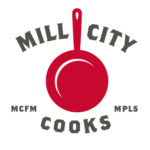Originally published in The Journal on July 27, 2017.
Kombucha is one of the fastest growing popular health drinks on the market these days, but why all the hype? Kombucha is a fermented black or green tea infused with sugar and natural flavors. Because it is fermented, kombucha provides many probiotics, which are the good bacteria that benefit your gut. While some critics are concerned about the alcohol that is present in kombucha due to the natural fermenting process, one should not worry as most store brews contain less than 0.5 percent alcohol by volume. Another bad representation kombucha gets is its high sugar content. Although some sugar is added while making kombucha, most of the sugar is metabolized by bacteria during fermentation and only one or two grams of sugar per serving typically remains.
So why are all these probiotics and other nutrients in kombucha good for us? Probiotics are the good kind of bacteria that is needed for healthy digestion in your stomach. Probiotics are helpful in boosting the immune system, preventing urinary tract infections, and fighting food-borne illnesses. Other beneficial nutrients in kombucha include; B-vitamins, polyphenols and antioxidants. Due to the fermentation process, these compounds found in the drink are more bioavailable. This means that the nutrients are more rapidly and easily available for absorption and utilization in the body. Basically put, kombucha is a product that can deliver certain nutrients more effectively than other foods or certain vitamins.
Kombucha lovers also boast about other health benefits, like the drink can potentially help reduce blood pressure, reduce atherosclerosis, enhance metabolism, and improve skin and hair health, but there is little scientific evidence supporting these claims.
Fresh small-batch kombucha is available locally at the Mill City Farmers Market from one of its newest vendors: GYST Fermentation Bar. GYST is a popular Eat Street restaurant founded in 2015, offering house-made, sustainably sourced fermented food. Offering everything from kombucha to traditional lacto-fermented pickles, GYST is available part-time on the market’s expansion on Chicago Avenue and at the Market’s new Tuesday Night Market at The Commons park.
Chef Heather Hartman from the Mill City Farmers Market’s Saturday cooking demo, Mill City Cooks, incorporated kombucha into a chilled summer soup, recipe below. In need of honeydew, cantaloupe, or mint for the recipe? Come to the Mill City Farmers Market on Saturday mornings or Tuesday evenings to pick up your local ingredients. Mill City Farmers Market is Minneapolis’ trusted source for local and organic food, bringing good food, cooking education and live entertainment to one beautiful place.
Click here to get the recipe for Chilled Melon Soup with Kombucha
Photo credit: https://www.elblogdelasalud.info/Centro-Informacion-Medica/efectos-secundarios-del-te-de-kombucha/7485


